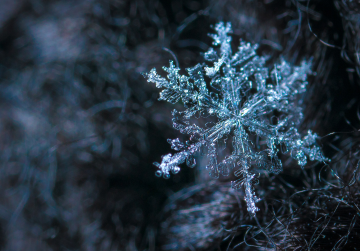
Freshwater Future Weekly: December 21, 2023
This Week: Your Gift Today, Support Our Fight for Safe Drinking Water; Strengthening the New Lead and Copper Rule: Replacing Lead Pipes with Plastic Pipes is Not the Solution; Application Deadlines Announced for Canada’s Great Lakes Freshwater Ecosystem Initiative Funds; Meet Our Fall 2023 Grantees; Michigan’s Eagle Mine Seeks Underground Mining Expansion; As a Warm Winter Begins, Ice Cover on the Lakes are Low
Your Gift Today, Support Our Fight for Safe Drinking Water!
Your contribution to Freshwater Future is vital in our fight to eliminate lead and other contaminants from our freshwater resources. Your financial gift will make a positive difference in keeping families safe and will strengthen and uplift community action on water issues with more tools and resources groups need. Thank you for caring, sharing, and giving your support toward this critical cause! You can help by clicking here!
Strengthening the New Lead and Copper Rule: Replacing Poison with Poison? Replacing Lead Pipes with Plastic Pipes is Not the Solution
A former U.S. EPA regional administrator, Judith Enck, issued a warning for the entire nation about health risks of using plastic pipes to replace lead water pipes in a published Op-Editorial. The U.S. EPA recently released their draft Lead and Copper rule which guides how governments and utilities work to prevent and address lead in drinking water. The rule requires utilities (with exceptions) to replace lead service lines within 10 years, but it says nothing about utilizing safe materials for these replacements. In fact, two popular replacement materials, PVC and PEX plastics, are known to release toxic chemicals into drinking water. Some are even considered neurotoxins, not unlike lead. Freshwater Future is calling on the U.S. EPA ban hazardous plastics for replacements in the proposed rule. Join us by sending your comments today urging the U.S. EPA to have the strongest possible Lead and Copper Rule. Want to learn more? Register for our New Federal Lead Rule Teach-In: Use Your Voice to Push for Safer Water webinar on January 9th!
Application Deadlines Announced for Canada’s Great Lakes Freshwater Ecosystem Initiative Funds
This week, Environment and Climate Change Canada announced a call for proposals for the Great Lakes Freshwater Ecosystem Initiative. This is the first cycle of funding equivalent to the United States’ Great Lakes Restoration Initiative that freshwater advocates, including Freshwater Future, pushed to establish. Now it is Canada’s chance to clean up Areas of Concern, prevent toxic and nuisance algae, restoring and protecting critical coastlines, support community based science, and reduce toxin releases. The deadline for applications is February 15, 2024 and letters of intent related to Lake Erie Precision Conservation are due on January 29, 2024 – Find more information and apply here!
Meet Our Fall 2023 Grantees Protecting the People and Waters of the Great Lakes!
In the spring and fall, Freshwater Future distributes grants to grassroots organizations advocating on water issues in Great Lakes communities. This season we are so proud to fund a fantastic group of advocates working to protect the Great Lakes from mining, emerging contaminants, industrial pollution, and so much more. One of our grantees is Protect the Porkies, a group of advocates organizing to stop a metallic sulfide mine from destroying treasured natural areas in the Porcupine Mountains State Park in Michigan and the quality of Lake Superior. Follow and join their fight against clearcutting, wetland destruction, and stream alteration here. You can read about our ten other grantees here and in the coming weeks!
Michigan’s Eagle Mine Seeks Underground Mining Expansion
Eagle Mine has requested an amendment to expand underground mining in Upper Eagle East, submitting a proposal to the Michigan Department of Environment, Great Lakes, and Energy. The expansion is expected to add 2 million tons of mined ore, potentially extending the mine’s life through 2029, subject to economic conditions. The amendment is under review, raising questions about long-term environmental sustainability. We will keep you posted on opportunities to speak out about the expansion.
As a Warm Winter Begins, Ice Cover on the Lakes are Low
Unusually warm winter temperatures across the Great Lakes region have led to dangerously thin ice on lakes, prompting warnings from municipal and state authorities across the region. Lakes in the Upper Midwest usually develop ice by December, allowing for treasured winter activities from ice fishing and skating, but the warm start to the season has hindered ice growth. The Great Lakes, typically at 3% ice coverage in mid-December, currently show just above 0% according to data from the National Oceanic and Atmospheric Administration (NOAA). NOAA has predicted that the El Nino in place heading into winter for the first time in four years will result in warmer-than-average temperatures and a drier winter. Experts continue to caution against venturing onto thin ice, stressing the need for at least four inches to support human weight and eight inches for small vehicles.